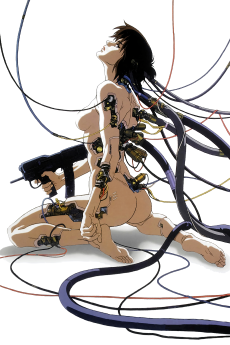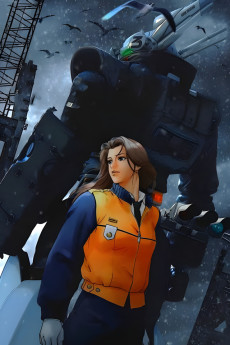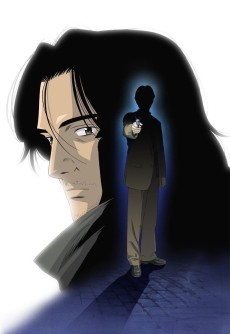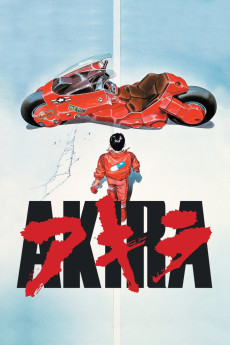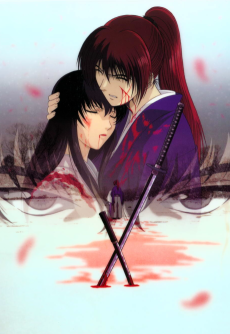JIN-ROH
MOVIE
Dubbed
SOURCE
MANGA
RELEASE
June 3, 2000
LENGTH
102 min
DESCRIPTION
In a very different Tokyo from the one we know today, the totalitarian government rules with an iron fist. But a group called "the Sect" is staging demonstrations and challenging the government's martial law. Constable Fuse of the Capital Police's Special Unit is on a mission to stop a Sect demonstration when he encounters a girl in the sewers under Tokyo.
When he fails to shoot as ordered, he is put on trial, questioned, and "re-conditioned" as a soldier. But the dead girl haunts him, both in his dreams and in the face of her sister, whom Fuse has befriended. But Fuse has made himself a target for some very powerful men... And as the world comes crashing down around him, Fuse is continually challenged to decide what is real and what is right.
(Source: Discotek)
Note: The film received an early premiere at the Fantasia Film Festival on August 6, 1999.
CAST
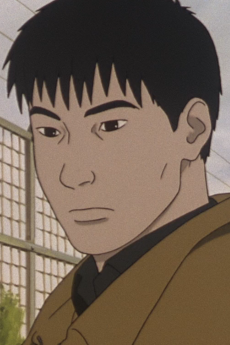
Kazuki Fuse
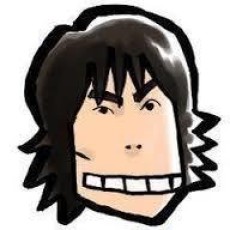
Yoshikatsu Fujiki
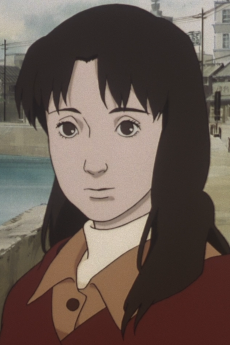
Kei Amemiya
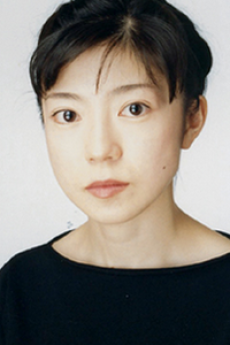
Sumi Mutou
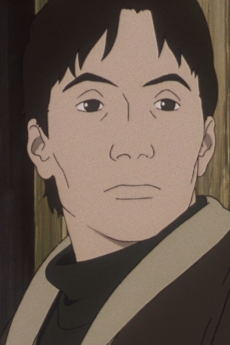
Atsushi Henmi
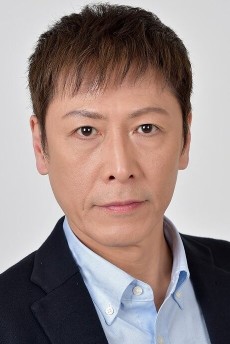
Hiroyuki Kinoshita
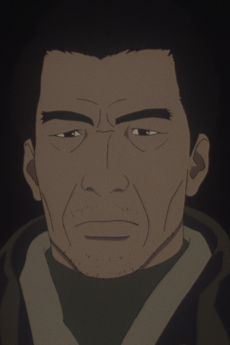
Hachiroh Tohbe
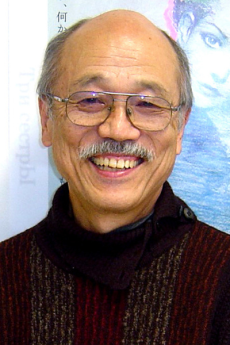
Yoshisada Sakaguchi
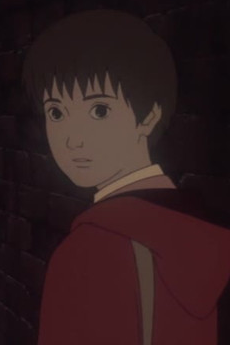
Nanami Agawa
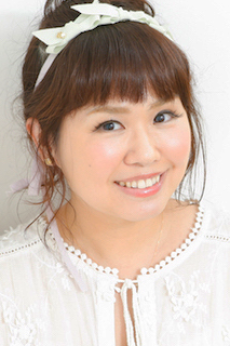
Eri Sendai
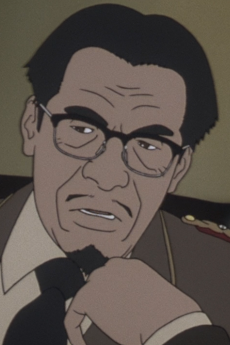
Shiro Tatsumi
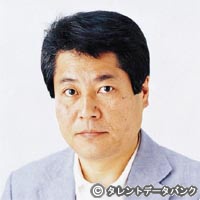
Ryuuichi Horibe
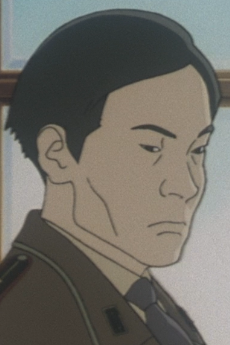
Hajime Handa

Yukihiro Yoshida
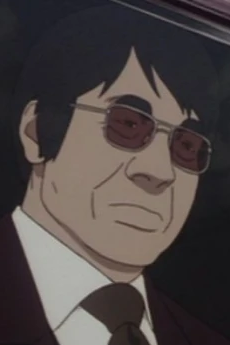
Bunmei Muroto
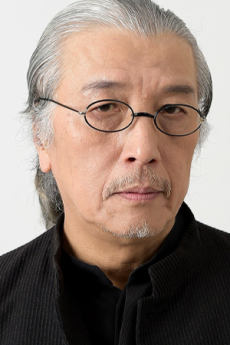
Kousei Hirota
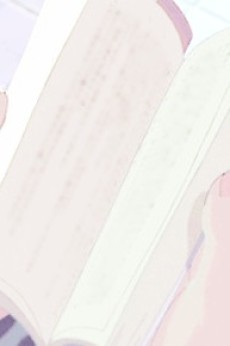
Narrator

Yoshisada Sakaguchi
RELATED TO JIN-ROH
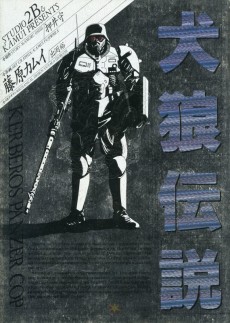 MANGA ActionKenrou Densetsu
MANGA ActionKenrou DensetsuREVIEWS

escapist
95/100A subtle tale of tragedy.Continue on AniListSometimes while consuming media you find something that you can only profoundly respect. For me, Jin-Rou is exactly that. It honestly transcends the muh anime deal and elevates itself to cinema levels, good cinema. This IS a must-watch and I feel like saying some stuff about it, spoilers included. First things first, this film is visually lovable. Some might find its worn presentation tiresome and bland, but it captures so strongly the feeling of hopelessness and wasted people living in a wasted world of wasted politics and wasted happiness, it's amazing. It's directed by the guy who made character design for Ghost in the Shell, a big friend of Oshii, and his ultra realistic character designs find perfect place in a narrative that is all about how reality functions. It's not easy to use those to their fullest, but whenever you have characters getting frantically holed by huge ass bullets, summarily executed without a blink for pity, you believe in it. It's heavy, and you feel the weight of those individuals dying for a cause. That is without mentioning its attention to detail, and how there is an entire else world going on while our characters casually live their lives. There is always something there, moving, existing, at any given moment. And that is shared with the audience in the sense we are also clueless of stuff that is just heavily implied. Facial expressions, moments of silence, of apparent discomfort, sadness, disillusion, hopelessness. All captured like it should, adding barely more than needed and leaving nothing to be desired. A balanced directing, aware of the perfect timing to cut scenes and progress things, so they can sink in without losing focus and grip on what the film is about. Lightning deserves its own mention. If you don't know what it looks like to have bullets being shot in a shady ambient and hitting their targets, be it metal, concrete or flesh, these guys did their homework to make it as realistic as you can possibly get, and cool as fuck to witness. So yeah, that is all on the visual end. Don't let me get into sound design. If you are into gun porn and gun sounds and steps from troops relentlessly marching towards their prey, oh boy, enjoy it. But what honestly separates Jin-Rou from a cool looking flick about cops doing cops things is definitely the screenplay. Again, this is great cinema, and if there is one thing that is common to great films is their writing. An inattentive watch for this picture can cause the feeling of indifference, also known as, "is that it?". Well, yeah, it has a hell of a slow pacing and its plot is considerably small and simple. But the thing about this movie is that it's a piece of expression, and most people won't bother to know what Oshii was trying to say. He wrote all of this world and characters, characteristic of his worldview, and knowing the guy helped me a lot comprehending all the subdued things that could easily pass unnoticed. At the very beginning, we are introduced to the world of Jin-Rou through an expository documentaryesque sequence that closes with: "As they were about to join the pages of history, the changing times were about to give them a new and final mission", referring to the Special Unit. Let's go from there. Jin-Rou begins by exploring the idea that big shifting moments in our history were determined by small actions, or in this case, small inaction. By not pulling the trigger at the beginning, Fuse becomes a chess piece in a dangerous game of interests that could only end in tragedy for one side. There is also the idea of entering the pages of history in a way most people often don't take into consideration, which is of entering subtly by not being there. History isn't necessarily known, though it's always there, crawling in the corners of our lives. Unknown heroes, unknown villains, unknown victims: that is our history, filled with blood-stained pages. And that is all because what the pack wishes to achieve is the perfect status quo, fighting hard to maintain its existence, always hiding their plots from public knowledge. So this might leave watchers wondering if the ride is worth it, because shit seems not to happen. Well, that is the point of the film. All it's done is an act of regression, to represent post-war Japan's mindset and spirit of never actually changing. Things come and go, movements arise and disappear, blood is shed, and people remain the same. In our world, Japan grew to be what is described in Oshii's masterful Patlabor 2. In Jin-Rou's world, where Nazi Germany won the war and methods of oppression were of common use, the society ignores the Sect's revolutionary acts, as well as the Special Unit's crude repression. It achieves minimal stability and already throws in the towel, being only a section of the government interested in changing things. That change is, however, only interested in shifting structures of power from one side to the other, while remaining ultimately corrupt. Just look at the methods these bureaucrats utilize to get there. So there is an evident pessimism to the film's political backdrop and message, not a surprise coming from Oshii. But there is more than just that to Jin-Rou. It's also the story of people, and of how much they are worth: nothing. There is a cut in the last minute that I must say, it's one of the best cuts I've seen in all of anime. The idea of cutting to something else is of separating two realities that just couldn't be recorded as the same. There could be a moving camera shifting from one place to another, but only a cut can convey that feeling of 'wow, look how different these two perspectives are'. It is a meaningful cut, and its meaning is soul-crushing. The tragic tale of death, of finality. After crossing a point of warped morality, there is no going back. Fuse is lost, forever. The last moments of that couple are spectacularly shot. There is a sense of objectivity to the scene, like if it's recorded by superior all knowing beings without a moral compass to mourn upon the cold farewell of two murderers from different sides. Both share a dream of belonging, both die in a sense, one remains human, the other shows its true colors. And, reaching the end of this few-seconds long scene, we cut to a man, a wolf, holding a gun, pointed at the two, waiting for yet another inaction of our protagonist to fire and kill both. It's not necessary, of course, but it shows reality as it is like no other scene had before. This is Fuse's and Kei's value. This is what they truly worth: nothing. She is to be disposed of in some wasteland, and he is, despite his talent and skill, as disposable. By choosing the "right" side, he lives, although dead inside. Had he chosen otherwise, he'd be over too. Dying as a human, becoming a wolf, it's all the same. All about negating humanity, and by cutting from the tragedy to the routine of dealing with internal doubt and risk by the more experienced from the pack, it separates the movie in two. The tragic tale of two souls destined to cease, and the tale of wolfs casually eating their preys, like they always do; nothing special about it. It's depressing, it's sad, it's hopeless. But it ends. It ends and that is all that matters. What is done is done, Fuse is done for, so is Kei. The pack's position is secured for some time, the danger of termination is postponed until further notice, and things ultimately remain the same in the grand scheme of things, like Oshii wanted to say. It's dark, it's merciless, and it's striking. It might be boring, uninteresting to some, simplistic to others. The film is what it is, a piece of expression that never felt the need to overstate anything that had going for it. The blatant quoting of Little Red Riding Hood is just a tiny fraction of what the anime is about. If you got caught up on that, you may have missed a big portion of its quality. It's like a solid rock. Hard to approach, hard to carry, hard to take something away from, but it's definitely worth it. Every time I rewatch it, I always think just how powerful it is by doing things that way instead of resorting to a more action packed style, which is more Oshii like. I also think it's much more subtle than anything Oshii has ever done, which I attribute to him not directing it, but instead only giving essential advice, and coordinating the production. Truly masterful. Give yourself a watch. 
ManlyButterBath
90/100Jin-Roh, or the dehumanization of man.Continue on AniListWe are not men who dress like dogs. We are wolves disguised as men.
Jin-Roh is a very important movie today, even more so than it could've been back when it was originally released. It raises great questions: how can one retain their humanity in a cruel world? Should you retain it, or should you become a monster instead? Does your choice even make a difference or is it all truly worthless? It's hard to answer these questions on the fly. It was all the harder for Kazuki Fuse, who at the beginning of the story couldn't bring himself to shoot a little girl, even though she was a terrorist. His reluctance not only gets him reprimanded and assigned to retraining, but it also sets in motion a plan with societal and political implications far greater than him in which he's but a mere powerless pawn.
What follows is a complex story with a simple premise: the weak are destined to be killed by the strong. There is no place for morality or feelings in the equation. There can be morality and feelings, but they essentially do not matter. This is made abudantly clear by the movie when it refrains from ever telling you how to feel about this faction or the other, or even when it comes to the characters themselves. It is not a coincidence that mainstream society within the setting of this movie doesn't care about either the police or the insurrection. It is not a coincidence that mainstream society is barely featured at all. When making history, the neutral masses do not get to have a say, and are completely subject to the display of power between two sides as is the case in this movie.
But even if you do involve yourself in all these machinations behind the scenes, that is no guarantee you will be the victor. There is no guarantee that you will always be the strong trampling over the weak. Or that you will be happy. Kazuki Fuse joins the Special Unit out of the desire to belong. To call a place his home, and his comrades-in-arms his family. But is it worth it? I have my own answer to this question, but I'm not here to preach.
The point is that Jin-Roh is far more than what meets the eye at first, but it does struggle to show this and it is partially to blame for it. The pacing is very slow and sometimes it is difficult to catch on things. The characters are nothing to write home about and the lore, while interesting, isn't fleshed out as one would like, but neither of these are the strong suits of this movie. The visuals and the music are absolutely gorgeous and I love them. The biggest flaw this movie has in my opinion is the fact that it really pushes you to focalize on the correllations between Little Red Riding Hood and its own story, in such a way that can diminish an appreciaton for its more subtle themes that are arguably far more interesting.
This is quite obviously not a movie for everyone. If you're looking for something easy and conventionally entertaining to watch, this isn't it. Chances are you won't care "to get" this movie. That is perfectly okay and valid. But if you are willing to let it do its thing on its own terms, you will be rewarded with a breathtaking finale and plenty of real, meaningful things to think about.

noob2121
90/100Jin-Roh: Wolf Brigade chillingly berates humanity and concience in the face of systemic oppression.Continue on AniListContent Warning: Discussions of fascism and violence
Tbh for a while now, I had been craving a depressing anime, no happy ending, no emotional closure, just depression. And I think this kind of scratched that itch. JIN-ROH: Wolf Brigade is a chilling story of fascism and dehumanisation under such a system.
So yes the show has a lot of Fascist references, most notably the fact that the franchise its part of is quite literally set in an alternate history timeline where Nazi Germany won WW2 and occupied Japan before denazifying back into liberal democratic Weimar Germany. However, there's way more to this as well.
__Spoilers for literally the whole movie__ The first 2 minutes quite accurately describe (albeit through narration) the introduction of fascist elements into liberal democracy i.e. as a response and a force of reaction and counterrevolution against the rising revolutionary threat of the working class masses, even if not done with as much of a focus on or from the perspective of said working class as I would have liked. This manifests in the form of the "special unit" of the police, known as the "Capital Police", kind of like the equivalent of the Freikorps in Weimar Germany, being established leading to brutal repression of protests and uprisings. The protesters would subsequently go underground and then unify to form the Sect, a (not stated but I would assume communist) guerilla force, leading to widespread Sect-backed riots pitted against the Capital Police, who are used to exterminate Sect strongpoints and bases. The Capital Police are always heavily armed, sometimes with machine guns, fully uniformed, even wearing a face-covering visor with glowing red eye slots, it is clearly made to look intimidating, and also just as importantly indistinguishable from another. This erases all individuality from a person in uniform, making everyone look exactly the same and this follows the fascist ideas of a strong police state, and as well as adds to the image of uniformity, where every individual gives up their individuality in service of the nation. It goes about this from the perspective of one of its enforcers, a member of the Capital Police, Fuse. Because of this, a lot of framing is done from the Capital Police's perspective. They are the ones “defending law and order" while the Sect are "terrorists". However, this framing of perpetrator and victim will be challenged, changed back and forth a lot throughout this movie.

This brings me to the most prominent parallel that Jin-Roh makes, and that is with the story of “Little Red Riding Hood''. This is first introduced in a literal sense, just a few minutes into the movie in which there is a girl, known as a Little Red Riding Hood courier, dressed in a red cape and everything, delivering a satchel bomb to a frontline rioter, who throws it at the riot police. It is important to note here that the civilians are the ones attacking the riot police, and not the other way around, in an attempt to present the rioters as at fault too, seemingly engaging in “bothsidesism” or creating a false balance in a society where the power dynamics between oppressor and oppressed are anything but balanced. The Capital Police then wipe out the Sect cell, but not before our mc, Kazuki Fuse, meets that same Little Red Riding Hood courier from earlier. He is ordered to shoot her, but hesitates and allows her to detonate a satchel bomb that she’s carrying, killing herself. It is only in the aftermath of this incident, where the parallels really begin.
He ends up meeting Kei, allegedly the older sister of the deceased girl. She gives him a book, titled “Rotkäppchen”, or more commonly known as “Little Red Riding Hood”. Upon reflection and recollection of the event, or even in random unrelated scenes, there are several shots of Fuse against the backdrop of wolves, alluding to the original Little Red Riding Hood, painting Fuse as the villain or the wolf in the story, attempting to ensnare the victim, that is the courier girl.


The story continues down this line of framing. Kei tells the story of Little Red Riding Hood in the background while Fuse conducts a Sect extermination exercise. One night, Fuse has a nightmare, in which Kei is brutally murdered and eaten by a pack of wolves. Images of Fuse gunning down another woman are also depicted side by side, with the nail in the coffin being this shot of Fuse being sitting amongst a pack of wolves. The last subtle thing that the show does to cement this framing, is how towards the end of Kei's narration of the story, Fuse starts to interject and say the wolf's lines for her.

The interesting thing about the Little Red Riding Hood parallel at this point of the movie to me, was how seemingly limiting it is. There is no redemption for the wolf in the fairy tale, there is no nuance or any sympathy evoked for the wolf. The wolf is just the bad guy, cuz yes. To condemn Fuse to the role of the wolf, would create this unchanging "villain-victim" dynamic between him and the couriers, which tbh would not be that bad even if simple. Nevertheless, I was curious how the movie would go down handling this parallel.
I could not have been more surprised to find out the next twist. Fuse receives a distress call from Kei, seeking his help to rescue her from a kidnap. However, it turns out that Kei is not actually the earlier girl's older sister, but rather another courier. She was captured by Public Security, the intelligence branch of the police, seeking to maintain public order through Counter-intelligence instead of violence. They intended to use her (a courier and Fuse's supposed enemy) relationship with Fuse as a means to defame the Capital Police, in a sort of interservice rivalry. She is thus kidnapped and used as bait to lure Fuse to be captured. This is where the parallel turns on itself head on. The situation has now reversed, the turns have tabled, now it is Kei's turn to be the one to ensnare Fuse to his doom. The movie's imagery thus shifts accordingly, this time painting Kei against the backdrop of wolves.

The switch up in framing, in my view, puts on display the little remaining humanity that Fuse still seemed to possess at that point, such that he could care enough for Kei to still move and rescue her. This thus helps expand the justification for the switch up in framing. Not only is Kei the one luring Fuse into a trap justifying her framing as the wolf in this case, but Fuse seemingly out of a blind love or care, goes and saves her without question, reflecting the humanity in Red Riding Hood. At this point of the movie, it had seemed that Fuse was acting completely on his own, independent of any orders from the capital police, and thus moving to save someone who was supposed to be his enemy, for no good reason other than out of care for her.
Fuse thus proceeds to rescue Kei, defeating a lot of Public Security soldiers in the process, and this is where the last major twist occurs. While escaping from Kei’s captors from Public Security, it is finally revealed that Fuse is part of a counter-intelligence unit within the Capital Police, known as the “Wolf Brigade”, who knew about the plot to defame the Capital Police. They have now exposed this plot of Public Security, and now they have an excuse to wipe them out and consolidate their power. They subsequently provide Fuse with full Capital Police body armour and a machine gun, who promptly proceeds to mercilessly gun down everyone, including the leadership of Public Security. Fuse had known about everything all along, the identity of Kei, the plot by Public Security, everything. All of those earlier impressions that I got about Fuse still having some form of humanity, were completely swept away. His actions were not out of his own free will, but merely to serve the interests of the organisation that he was in, he was but a cog in the system. There is a remark made by one of the wolf brigadiers in which he described their group as “wolves disguised as men”, and this is perfectly timed, to reflect how Fuse’s apparent care for Kei, was not genuine at all. His humanity was but a farce, very much matching the description.
The final allegory to Little Red Riding Hood comes in the last scene, where due to Kei's circumstances, she has to "disappear" (i.e. die without record), and Fuse is thus told to shoot her. In a final desperate moment, Kei hysterically screams the last lines that Little Red Riding Hood says to the wolf, "Mother, what big teeth you have!" before Fuse quite literally shows his teeth, and pulls the trigger. This once again finally reinforces each of their positions as perpetrator and victim. In this manner, Fuse finally ends up embracing the role of the wolf, the bad guy, the villain, stuck within the unchanging and self-serving system that he’s in, the Capital Police, whereas Kei is immortalised as a victim, who died a tragic death.

Jin-Roh: Wolf Brigade ultimately explores the effects of existing systems on our humanity and conscience, and comes to the conclusion that they mean jackshit in the face of systemic grooming. The organisation that Kazuki Fuse belongs to, the Capital Police, requires him to give up his humanity, in service of “the greater good”, to “uphold law and order”. It accurately captures Fascist narratives very well, and lays bare the horrifying consequences of systemic oppression, and their justifications. I enjoyed this anime thoroughly, for its deeply depressing borderline nihilism, the brilliant visual aesthetics that accompanied it, or maybe just for the fact that it gave me so much to write about. In any case, this was definitely a unique experience, and also my first Mamoru Ooshi work, I look forward to more.
SIMILAR ANIMES YOU MAY LIKE
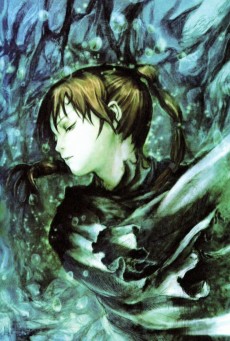 ANIME ActionTEXHNOLYZE
ANIME ActionTEXHNOLYZE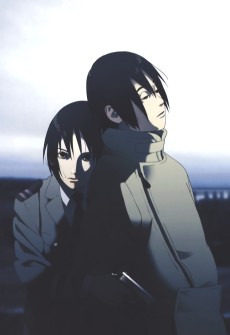 MOVIE DramaSky Crawlers
MOVIE DramaSky Crawlers MOVIE DramaPERFECT BLUE
MOVIE DramaPERFECT BLUE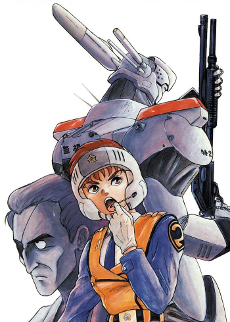 OVA ComedyKidou Keisatsu Patlabor
OVA ComedyKidou Keisatsu Patlabor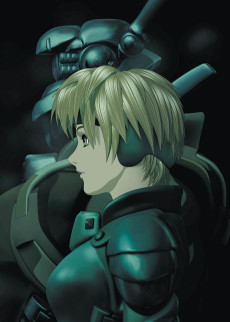 MOVIE ActionAppleseed (Movie)
MOVIE ActionAppleseed (Movie)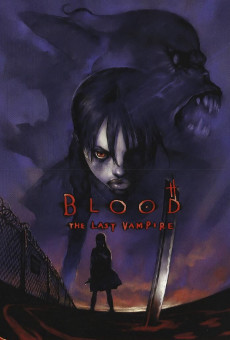 MOVIE HorrorBLOOD THE LAST VAMPIRE
MOVIE HorrorBLOOD THE LAST VAMPIRE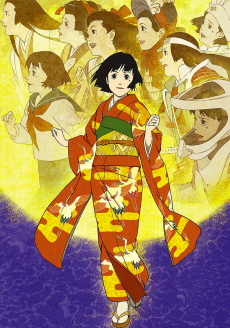 MOVIE DramaSennen Joyuu
MOVIE DramaSennen Joyuu
SCORE
- (3.8/5)
TRAILER
MORE INFO
Ended inJune 3, 2000
Main Studio Production I.G
Trending Level 1
Favorited by 1,351 Users

